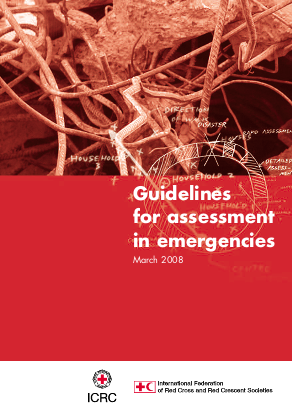
Assessment is a vital element of the programme planning process. It provides the information on which decisions will be made. Whilst good information does not guarantee a good programme,
These guidelines provide advice on how to carry out an assessment. The International Red Cross and Red Crescent Movement (the Movement) is involved in a wide variety of situations. Each assessment is different, reflecting this diversity. These guidelines do not explain every activity for every assessment. They do, however, provide a framework within which an assessment can be organized. By working through the guidelines, you should be able to cover all the main issues required for a successful assessment.
Resource collections
- Accountability to affected populations (AAP)
- ALNAP focus topics
- Evaluating humanitarian action
- Monitoring and Evaluation (M&E)
- Monitoring of humanitarian action
- UN Habitat - Urban Response Collection
- Urban Response - Urban Crisis Preparedness and Risk Reduction
- Urban Response Collection - Community Engagement and Social Cohesion
- Urban Response Collection - Economic Recovery
- Urban Response Collection - Environment and Climate Change
- Urban Response Collection - Housing, Land and Property
- Urban Response Collection - Urban Crisis Response, Recovery and Reconstruction
- Urban Response Collection - Urban Resilience
- Use of evaluation evidence